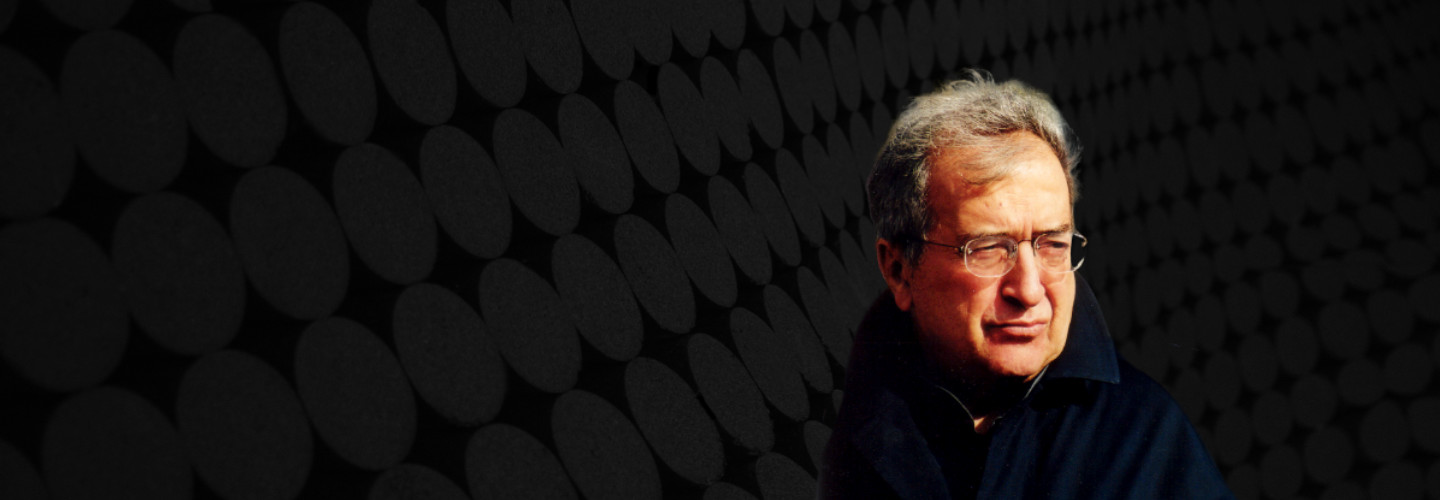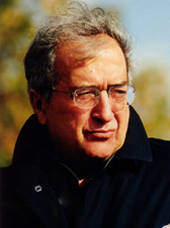

Luciano Berio
Circles
Short instrumentation: hrp, perc (2)
Duration: 20'
Gesangstext: E. E. Cummings
Dedication: To Mrs. Olga Koussevitzky
Solos:
female voice
Instrumentation details:
harp
percussion(2)
Berio - Circles for female voice, harp and 2 percussion players
Sample pages
Audio preview
Work introduction
Circles, commissioned by the Fromm Foundation, was composed in 1960 and first performed in August of that same year during the Berkshire Music Festival by Cathy Berberian and members of the Boston Symphony Orchestra. Circles develops musically three poems by e. e. cummings, with different degrees of complexity: No. 25, “stinging gold swarms...”, No. 76, “riverly is a flower...” and No. 221, “n(o)w the how dis(appeared cleverly)world…” from Collected Poems. In Circles the three poems are arranged in the following order: 25-76-221, (221)-76-25. No. 221 goes backwards over itself, while poems No. 25 and No. 76 appear twice in different moments of the musical development.
I had no intention of writing a series of vocal pieces with harp and percussion accompaniment; rather, I was interested in elaborating the three poems in a circular way so that a unified form resulted, where the different levels of meaning, the vocal action and the instrumental action would strictly condition each other, even on the plane of phonetic qualities. The theatrical aspects of the performance are inherent in the structure of the work itself which is, above all, a structure of actions: to be listened to as theatre and to be viewed as music.
Luciano Berio
Even if Berio's Circles points to the major musical interests of its time, especially at the level of the use of a text's phonetic traits, its truly innovative qualities lie in the way the study of a simple development on the basis of a physical analogy between the phonetic and instrumental material is carried out to the benefit of a deeper exploration of all aspects of linguistic and musical organization. In this sense, the text is a base line from which everything can be derived and to which everything can be traced back.
Circles is the result of a convergence between a type of literature that since the beginning of the century ("Finnegans Wake" would be an extreme case) has achieved a "musical" autonomy and an explosion of traditional forms and a type of music which attempts, by means of the structures of spoken language, to win back the characteristics of all language, whether musical or linguistic.
Jacques Demierre
Luciano picked out three poems by Cummings and asked me to read them as I wanted to, paying attention to the particular distribution of the text, the unusual word breaks, and the capital letters that emphasized certain sounds. Then he wrote out the relationship between me and the instrumentalists, who were to produce sounds similar to the word that I was pronouncing, and I was to adjust the sound of the spoken word to the sound of the instruments. For example, the word "sting-" at the beginning corresponds exactly to the sound of the harp. This was a completely new kind of interaction for me, a kind of permanent exchange, an extraordinarily stimulating challenge.
Cathy Berberian
